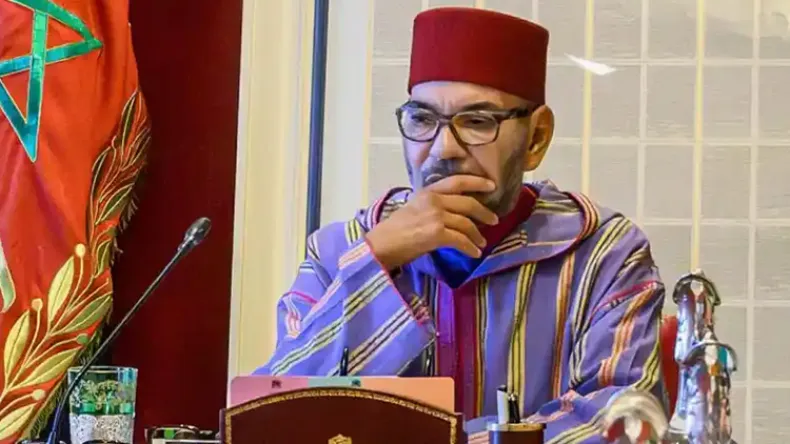Moroccan media revolt against Mohammed VI’s diplomacy Amid growing controversies

Morocco’s diplomatic efforts under King Mohammed VI are facing unprecedented media backlash as critics accuse the government of failed policies and questionable alliances.
The sharpest condemnations target the ongoing attempts to assert sovereignty over Western Sahara, exploitation of irregular migration for illicit gains, and continued normalization with Israel despite widespread outrage over its actions against Palestinians, including Moroccan nationals.
The latest diplomatic misstep that sparked widespread indignation was Foreign Minister Nasser Bourita’s reception of an opposition figure from South Africa—one who does not represent the democratically elected government in Pretoria—in a bid to extract recognition of Morocco’s contested claim over Western Sahara. Moroccan media outlets have labeled this move a “bizarre innovation,” questioning why such a figure could not be invited by a political party or parliament within Morocco itself, rather than being paraded as a diplomatic victory.
One headline bluntly asked: “Why does Bourita insist on scoring own goals against Moroccan diplomacy?”
Media expert Fouad Abdel Moumeni expressed disbelief at what he described as “the feebleness of Moroccan diplomacy,” questioning, “Has it come to this that Morocco promotes those rejected by their own country and political ethics as prized diplomatic trophies?” He warned that the battle “is not about throwing dust in people’s eyes with hollow gains.”
Adding to the chorus of criticism, retired Spanish Army Colonel Pedro Banios accused Morocco of leveraging the irregular migration issue to extort European countries for political and financial gains. The recent incident involving over 80 migrants—more than half of them children—swimming from Morocco to the Spanish enclave of Ceuta drew particular attention.
Mohamed Cherkaoui, an expert in international conflict resolution and former UN committee member, condemned Morocco’s tactic as a “diplomatic circus” that has caused the country to lose “its compass of wisdom and precise calculations.”
Human rights advocate Mohamed Qandeel charged the Moroccan regime with “using money and influence to buy political support,” calling for transparency rather than silence.
“Support from some regimes or parties on the Sahara issue does not reflect legal or moral realities but is the product of ‘deal diplomacy,’ where Morocco conditions investments and development aid on political stances,” he explained.
Journalist Badr El Eidoudi accused Bourita’s diplomacy of exploiting Morocco’s internal contradictions and corrupt elites marginalized from political processes, relying heavily on bribery and espionage. He dismissed the government’s proclaimed victories as merely “symbolic” or “illusory,” insisting that this approach “not only fails in the Western Sahara file but deepens Morocco’s international isolation.”
Meanwhile, official silence on the ongoing atrocities against Palestinians by the Israeli state has also drawn harsh rebuke.
Media figure Abdullah Al-Turabi criticized Morocco’s diplomatic stance as disconnected from the Moroccan public sentiment, describing it as complicity with the occupation.
“The court of history will bear witness and will not spare those who contributed to the tragedies unfolding in Gaza today,” he warned.
The Moroccan Observatory Against Normalization also condemned Bourita following the Israeli navy’s seizure of the humanitarian vessel “Hanzala,” en route to Gaza with Moroccan journalists aboard, questioning whether the minister would again remain silent as he did after the shooting of the Moroccan ambassador in Ramallah weeks ago.
As Morocco’s diplomatic strategy faces this unprecedented wave of criticism, it remains to be seen whether the regime will heed calls for reform or continue down a path of contested diplomacy and growing domestic and international isolation.
About The Author
dailymailafric
I am an avid African news observer, and an active member of Daily Mail Africa.
I’m Passionate about staying informed on diverse topics across the continent,
I actively contribute to publishing on political, economic and cultural developments in Africa.



